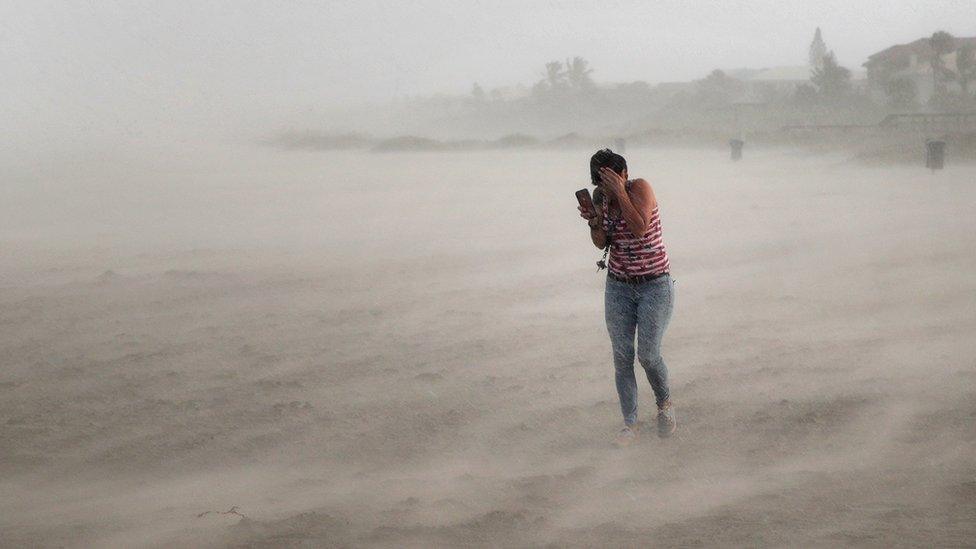Hurricane Iota 'rapidly strengthens' on path to Central America
- Published
Hurricane Iota strengthens
Authorities have urged communities to evacuate as a hurricane approaches Central America.
Forecasters say Iota is expected to strengthen to a "major hurricane" by the time it makes landfall in Nicaragua and Honduras.
The US National Hurricane Center warned of "potentially catastrophic winds" and "a life-threatening storm surge".
Central America is still reeling from the effects of Hurricane Eta, which killed at least 200 people this month.
The worst-hit area was Guatemala's central Alta Verapaz region, where mudslides buried dozens of homes in the village of Quejá, with some 100 people feared dead. At least 50 deaths were reported elsewhere in the country.
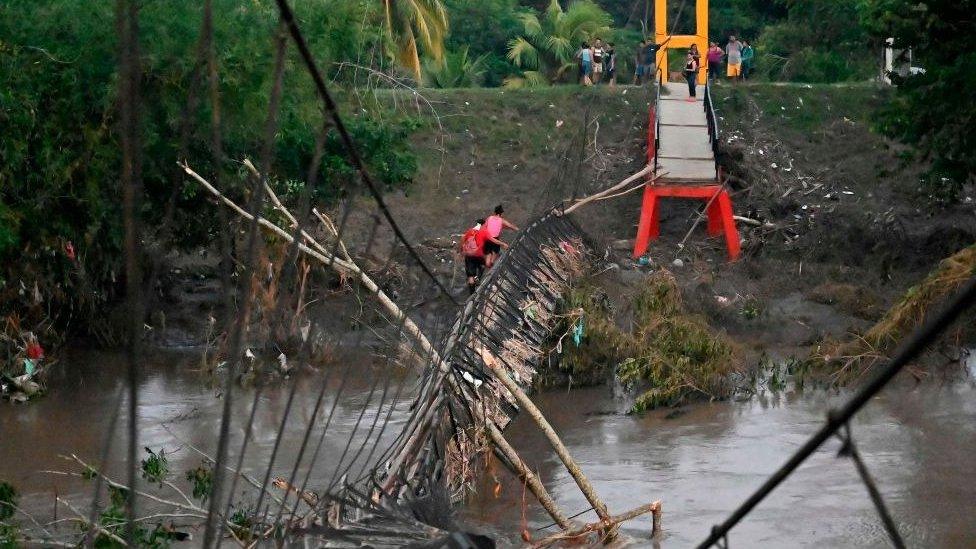
Access to some hard-hit areas in Honduras remains difficult after Hurricane Eta
Iota - the 13th hurricane of the 2020 Atlantic hurricane season - is expected to hit coastal areas of Honduras and Nicaragua on Monday.
"Hurricane conditions and a dangerous storm surge are expected," the National Hurricane Center (NHC) warned.
Iota had maximum sustained winds of about 85 miles per hour (137 km/h) as it approached the region on Sunday, but forecasters said it was rapidly strengthening.

Tropical Storm Iota's position at 12:00 GMT on Sunday
The NHC warned that "flooding and mudslides in Nicaragua and Honduras could be exacerbated by Hurricane Eta's recent effects there".
Parts of Guatemala, Costa Rica, Panama, Belize, El Salvador and Colombia have been warned to prepare for "life-threatening flash-flooding and river flooding" while coastal areas of Hispaniola and Jamaica may also see "life-threatening surf and rip current conditions".
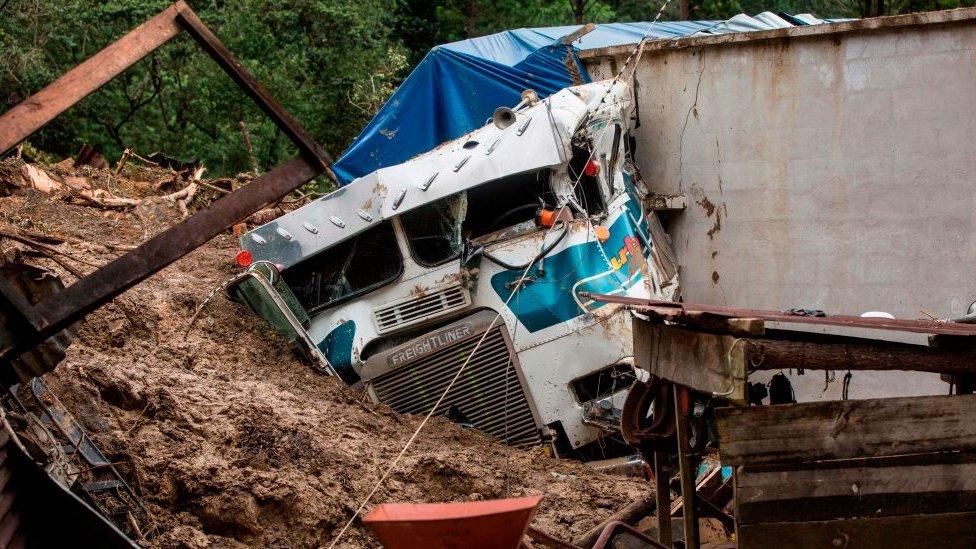
Quejá village in Guatemala was devastated by mudslides during Eta
The Honduran authorities ordered the evacuation of people in the area of San Pedro Sula, the country's second city and industrial capital, on Friday.
"Our red alert [in Honduras] orders mandatory evacuations," Julissa Mercado of Honduras' Emergency Response Agency told AFP.
Meanwhile, Guatemala's disaster officials have urged residents in parts of the north to voluntarily evacuate to shelters.
"Our ground is already saturated, so it's to be expected that we have more farming and infrastructure damage," President Alejandro Giammattei said.
"We have nothing... I am in pain" - Central America is counting the cost of Storm Eta
Iota will be the 30th storm this year to wreak havoc across Central America, the Caribbean and south-eastern US - a record for the region's hurricane season.
President Giammattei blamed the increasing frequency and intensity of hurricanes on climate change and accused industrialised nations of being responsible.
"Central America is one of the regions where climate change is felt the most," he told reporters after meeting his Honduran counterpart, Juan Orlando Hernández, in Guatemala City.
The region is hit by "catastrophic floods, extreme droughts and the greatest poverty" but nonetheless receives "the least help on behalf of these industrialised nations," he was quoted by AFP as saying.
- Published10 November 2020
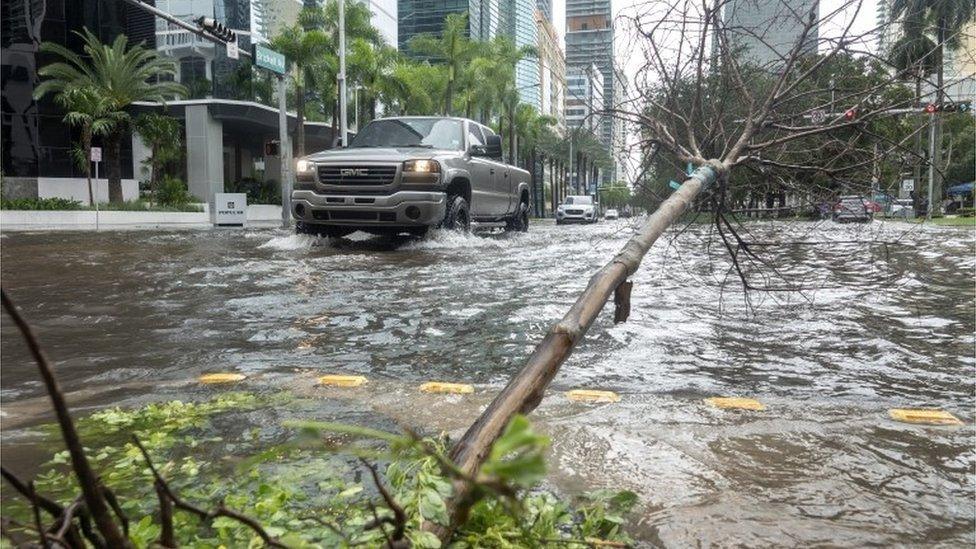
- Published6 November 2020
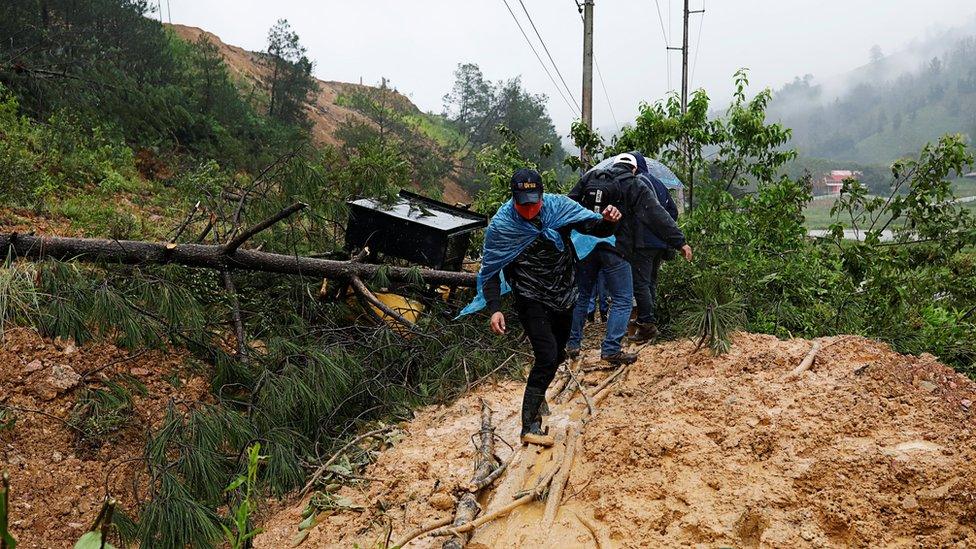
- Published16 September 2020
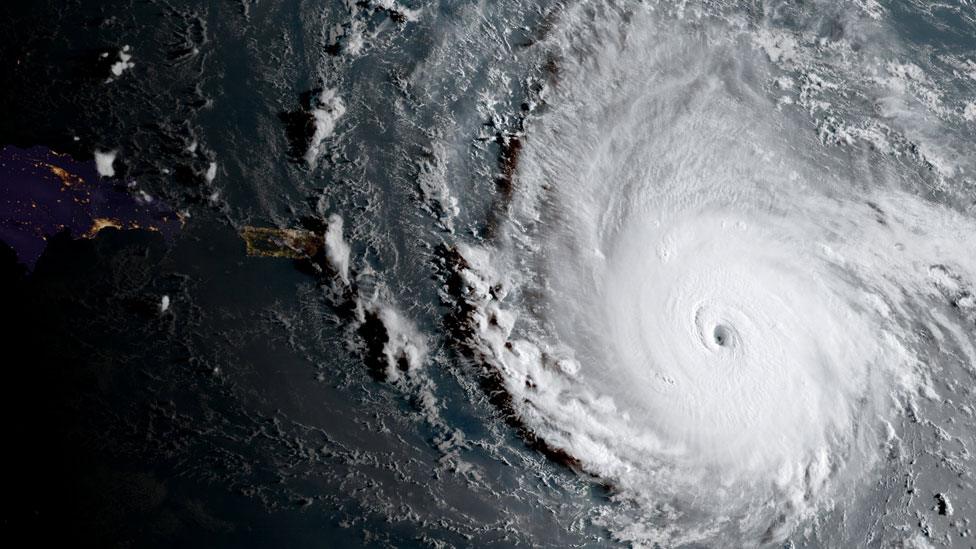
- Published11 November 2019
